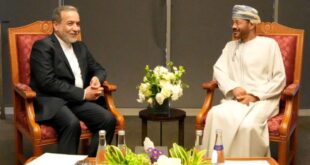 TEHRAN (FNA)- The Bush administration has given a US think-tank the go-ahead to open an office in Iran, in what may look to be a departure from its strict policy on the Islamic Republic.
TEHRAN (FNA)- The Bush administration has given a US think-tank the go-ahead to open an office in Iran, in what may look to be a departure from its strict policy on the Islamic Republic.
Clearance was given to the American-Iranian Council amid reports that the White House has shelved plans to open a de facto embassy in Tehran. There was concern that it could affect the US presidential election.
The council, a body of academics and former diplomats based in Princeton, New Jersey, was granted a one-year license by the US treasury’s office of foreign assets control, which scrutinizes American contacts with Iran for breaches of government-sponsored sanctions.
Ahmadinejad is understood to have indicated support when he met the council’s senior members while in New York last month to attend the UN general assembly, Guardian said.
The council, which was founded in 1997, has arranged for prominent American academics and business figures to meet Ahmadinejad during his various visits to the US. Its president, Hooshang Amirahmadi – a joint US-Iranian citizen – is currently in Tehran seeking authorization from Iranian officials. A final decision is expected in the coming days, with several officials voicing opposition.
Alaeddin Boroujerdi, chairman of the Iranian parliament’s national security and foreign policy committee, yesterday called for the application to be rejected after dismissing Amirahmadi as an “insignificant representative” of the US government.
“The Americans have already asked for dialogue on several levels, but this has not been accomplished because of their stances, so permitting such a person to open a bureau in Tehran does not accord with our national interests,” he told the Iranian students news agency.
The council argues that its initiative would ease contacts between officials and legislators and could eventually lead to normalized relations between the two countries.
Brent Lollis, its executive director, said the application was separate from the US state department’s proposal to open a diplomatic interests section in Tehran.
“It’s important to communicate the distinction between what the US government is doing and what we are doing,” he said. “Are we going to provide services that will be useful to diplomats and legislators? Yes. But we are not a substitute (for a diplomatic interests section) because the state department makes its own decision. We should be able to operate in Iran in the same way as we operate in the US.
“By being based in Tehran, we should be able to arrange a wider array of meetings. We are positioning ourselves to help any parties that may want to speak to each other.”
Plans for a US special interest section in Tehran were disclosed by the Guardian last July in what would mark the first American diplomatic presence in Iran since ties were severed in the wake of the 1979 Islamic Revolution.
However, that proposal has been thrown into doubt after AP, citing unnamed Bush administration officials, reported that it had been put on hold until the next US president takes office.
The US secretary of state, Condoleezza Rice, denied the AP report, saying that the proposal remained on the table but that no decision had been taken.
“I think it’s an interesting idea, but we’re going to take a look at it in the light of what it can do for our relationship with the Iranian people,” she told reporters.
 Eurasia Press & News
Eurasia Press & News



